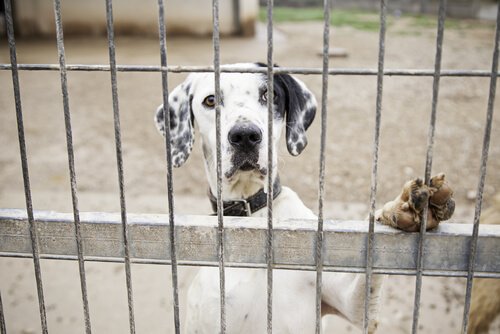Animal Protection Laws in Spain: How to Improve Them


Written and verified by the lawyer Francisco María García
Every so often, officials update animal protection laws. This is especially true when it comes to cats and dogs. On the one hand, they are intended to prevent animals from being abandoned. On the other hand, there’s hope for them to be defended against abuse.
In Spain, there is a Responsible Cat and Dog Ownership Bill is intended to stop the serious issues of abandonment of cats and dogs in Spain.
Abandonment statistics

According to data analysis, there about 150,000 pets that are abandoned every year in Spain. This places Spain as one of the countries in Europe with the highest rate of pet abandonment.
Out of these animals, experts estimate that only 18% of dogs and 3% of cats had a microchip. According to this new law, officials will consider animals abandoned if they’re not microchipped or if the owner hasn’t reported it as lost.
A cat is considered lost when they have been reported missing seven days after their disappearance.
Banning the sale of pets in stores
The current animal protection bill for cats and dogs contains one of the biggest ambition for animal loves. It prohibits animals from being sold in pet stores. There are fines in the case the bill is breached.
The new Responsible Cat and Dog Ownership Bill will ban these animals from being sold pet stores. However, this new bill doesn’t prevent the breeding of cats and dogs. However, breeders cannot sell the animals when they are less than 8 weeks old. Specialists in animal husbandry consider 8 weeks old to be the minimum amount of time for a baby animal to develop with their mother and siblings.
This new law also wants to officially regulate animal shelters, protective associations, and various public or private establishments that help collect abandoned animals. The goal is to aid them in saving animals, socializing them, and being able to find a family that will take care of them properly.
Prevent abuse and assure animal protection
This bill also integrates other bans that intend to raise awareness of animal cruelty. It also will persecute people who abuse animals. Thus, the law expressly prohibits abuse, causing suffering or harm to cats and dogs, abandoning them, killing them without veterinary euthanasia, using them in fights, docking ears or tails, or using them in “public shows or advertising activities that inflict pain or suffering.”
Big fines
The fines considered in this future law are between 100 to 3,000 euros in the case of minor charges. However, they can go up to 30,000 euros for felony charges or up to 200,000 euros in very serious cases. Among the latter is the sale of animals in stores, dogs fights, mutilation, killing an animal, or abandoning an animal where it circumstance that can lead to death.
In addition, sanctions include disqualifying offenders from possessing animals or managing animal protection entities.
Ways to report for animal protection

If you every come across a dog locked in a car on a very hot day, you can report it. This is considered to animal cruelity because it endangers the health and even the life of the animal.
You can report this in two ways, before authorities or through criminal proceedings. If the animal isn’t in immediate danger of death, you can still file a report and provide evidence.
An animal alert phone app allows you to quickly and anonymously report and send pictures and information. Animal Justice and Defense Patrols created the app. This tool acts as a filter, analyzing complaints and then deciding whether or not to take legal action.
Putting animals asleep
There are also initiatives that prohibit putting animals alseep in animal shelters as a solution to abandonment. Other provisions establish strict laws about population control. In addition, it discusses control over breeding and determining the origin of the animals.
This text is provided for informational purposes only and does not replace consultation with a professional. If in doubt, consult your specialist.